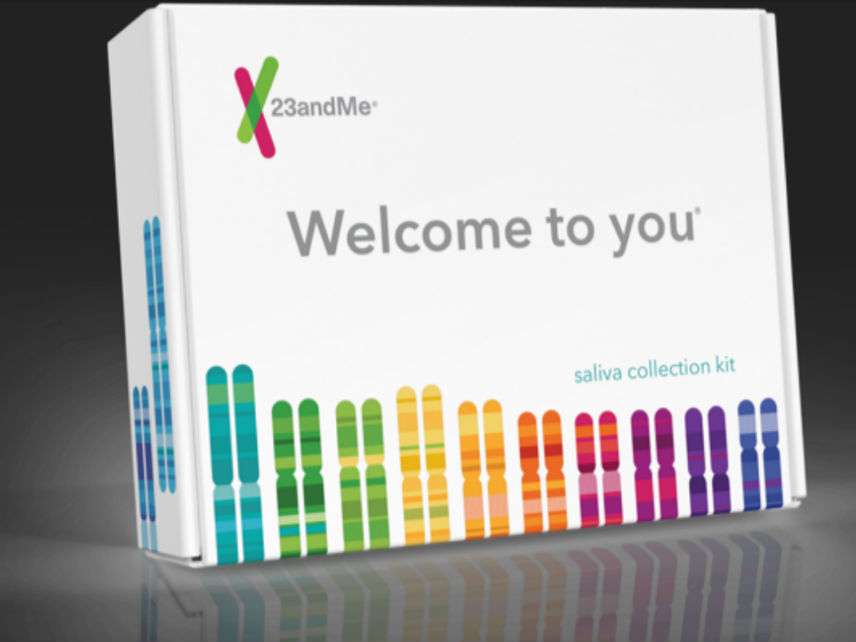The FDA Will Finally Let You See Your Genetic Information
FDA head Scott Gottlieb overturns Obama's ban on direct-to-consumer genetic testing.

Food and Drug Administration (FDA) head Scott Gottlieb is reeling in his agency's outrageous four-year ban on direct-to-consumer genetic testing.
Under the Obama administration, the FDA sent a letter to the genetic testing company 23andMe warning that the company was "marketing the 23andMe Saliva Collection Kit and Personal Genome Service…without marketing clearance or approval in violation of the Federal Food, Drug and Cosmetic Act." The letter noted that the company's tests had been providing "health reports on 254 diseases and conditions," including categories such as "carrier status," "health risks," and "drug response." But not anymore: The folks at 23andMe had little choice but to knuckle under to the agency's demands and stop testing new customers.
The company was eventually permitted to offer genetic test information on customers' ancestry and on genes associated with traits like the length of their toes. In early 2015, the agency allowed the company to provide users with results from a trait carrier test for Bloom Syndrome. Prior to the FDA's ban, the company's $99 genomic screening test package had included results from 53 trait carrier tests.
In April of this year, the FDA finally allowed the company to supply customers with genetic health risk information for 10 different conditions, including late-onset Alzheimer's disease, Parkinson's disease, celiac disease, and hereditary thrombophilia (harmful blood clots). Before the ban, the company had been providing its users with some genetic insights with regard to all of those health risks and about 140 others.
Gottlieb's statement dramatically loosens his bureaucracy's stranglehold on direct-to-consumer genetic testing. After genetic health risk test manufacturers have passed through a one-time FDA review ensuring that they meet the agency's requirements for accuracy, reliability, and clinical relevance, any subsequent additional health risk tests will not need to undergo further review. "The floodgates for direct-to-consumer genetic tests are swinging wide open," declares the STAT science new service. Let's hope so.
For more background, see my 2011 Reason article on my own genetic testing experience here. Go to SNPedia here for even more information on my genetic flaws.
